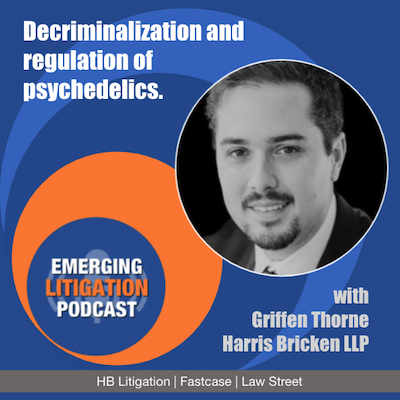Compliance with laws and regulations, financial reporting, disclosures, securities, employment, safety, advertising, consumer protection, tax, IP, environmental.
Psychedelics Decriminalization and Regulation with Griffen Thorne
Psychedelics Decriminalization and Regulation with Griffen Thorne Listen to my interview with Griffen Thorne, an attorney in the Los Angeles office of Harris Bricken LLP. He focuses on corporate, transactional, intellectual property, data security, regulatory, and litigation matters across a wide variety of domestic and international industries. As part of Harris Bricken’s corporate cannabis team, he works closely with cannabis and hemp clients, whom he advises on obtaining licenses and permits, regulatory compliance, entity formation and structuring, mergers and acquisitions, corporate governance issues, contract drafting and negotiation, obtaining and protecting intellectual property rights, and administrative appeals and litigation. He also represents clients throughout a wide range of industries regarding compliance with United States, European, and Asian Internet, technology, and data security laws and regulations. We hope you enjoy the interview. Tom Hagy Send questions or comments to Editor@LitigationConferences.com. What does the future hold for psychedelics in America? How are states approaching the ownership and use of these drugs, either for recreational or their controlled therapeutic use?











